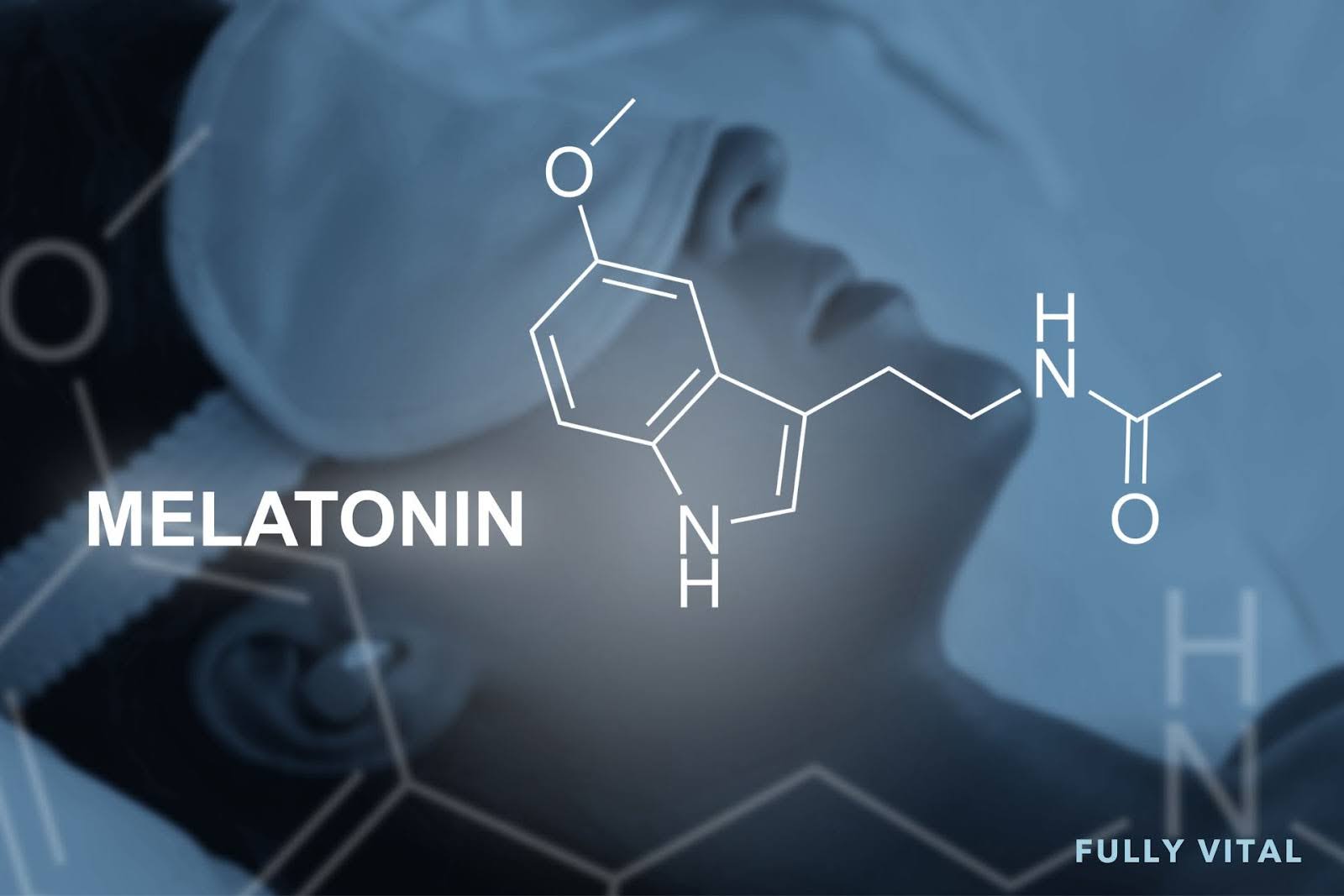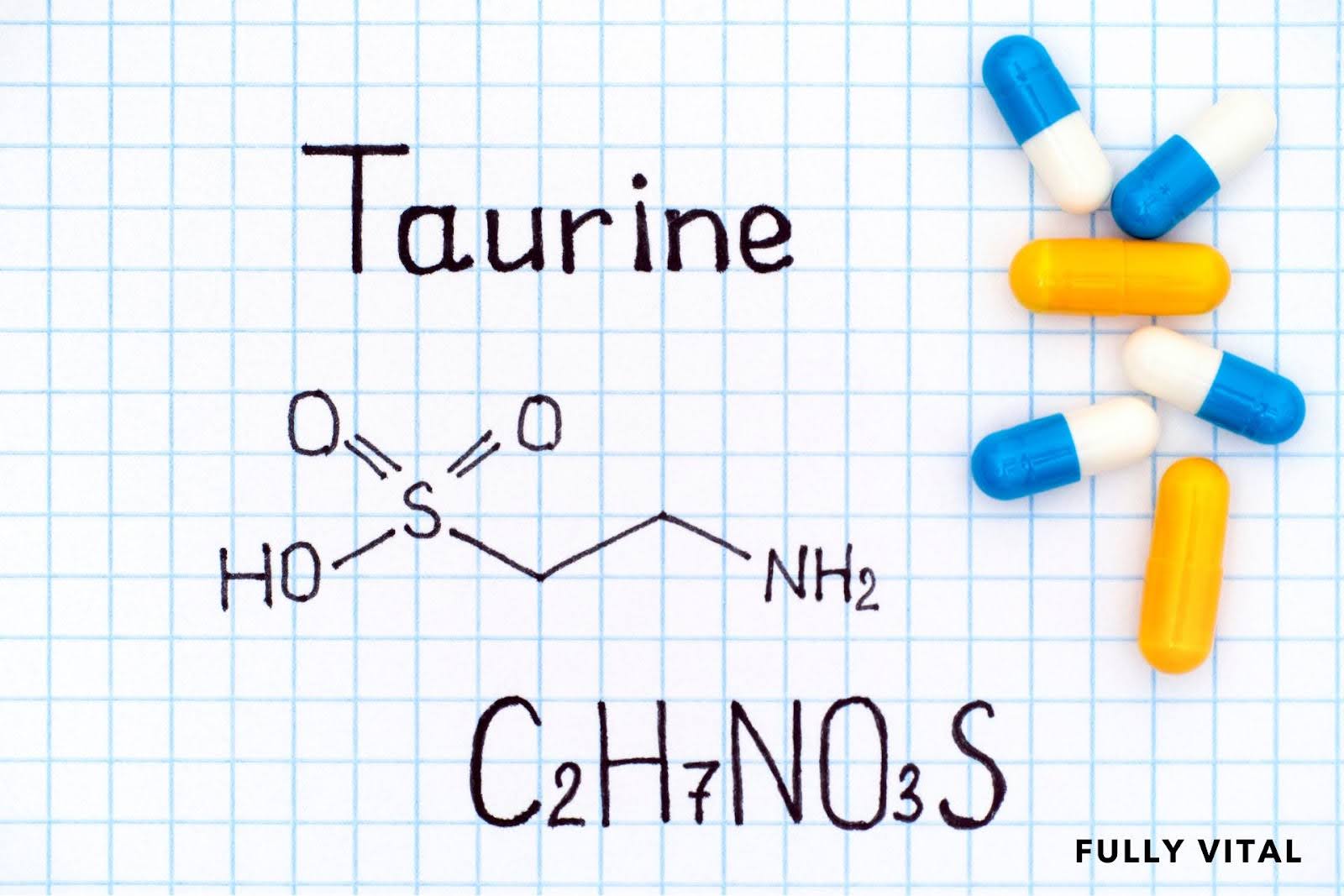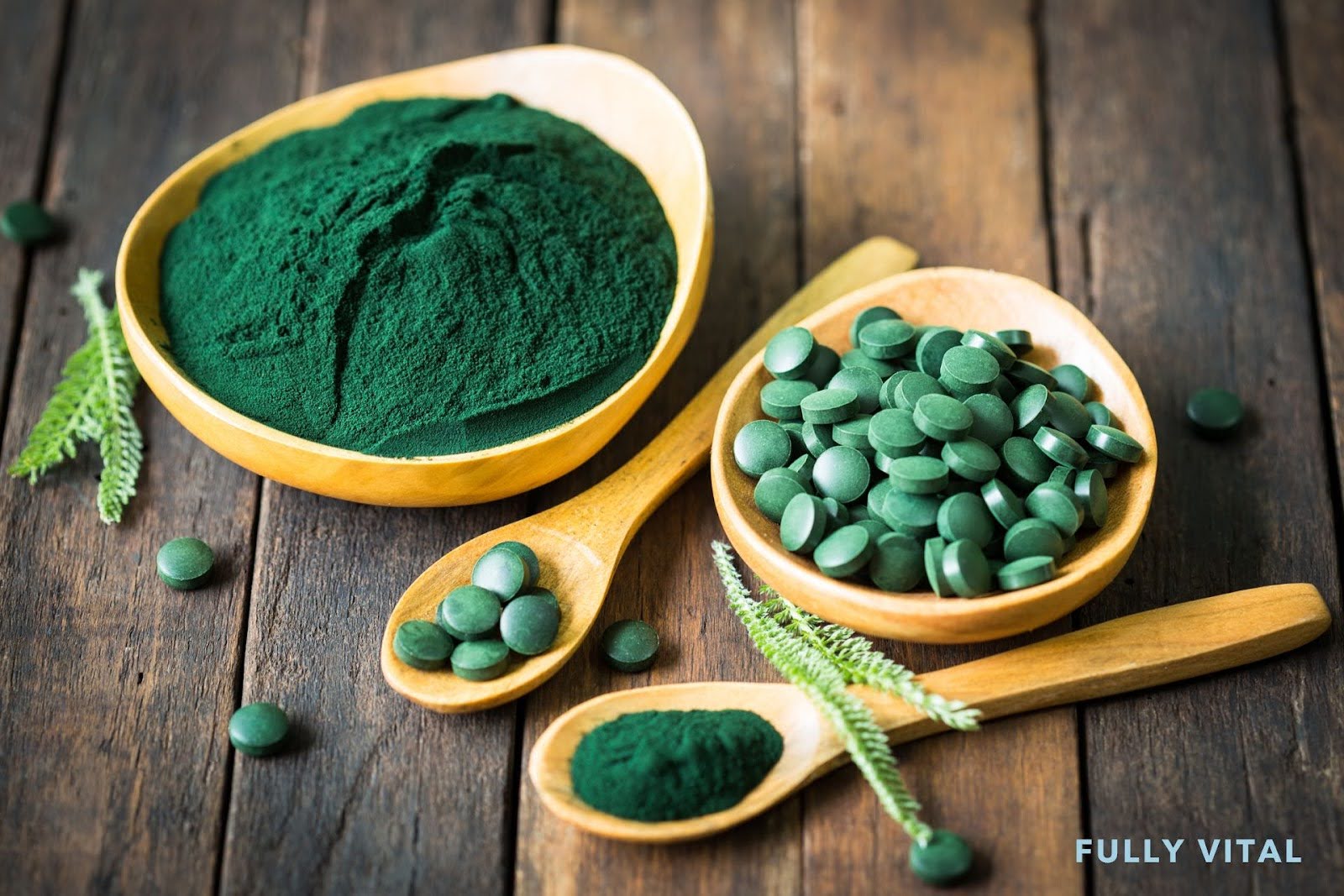
Melatonin: More Than Sleep - A Hair Growth Factor?
Melatonin is widely recognized for its role in regulating sleep cycles, but recent research suggests its benefits may extend far beyond a good night's rest.
Intriguingly, this naturally occurring hormone might also play a significant role in hair health, potentially offering new hope for those battling hair loss and seeking ways to enhance hair growth.
As we explore into the science behind melatonin and its effects on hair follicles, we uncover how this sleep-related hormone could be a key player in the quest for stronger, thicker, and healthier hair.
This article explores the emerging evidence linking melatonin to hair growth, examines its potential as a treatment for hair loss, and provides insights into how to use melatonin effectively for hair health.
Ready to give your hair the boost it deserves?
Fully Vital's Hair Growth Serum harnesses the power of melatonin and other key ingredients to support your hair's vitality from root to tip.

I LOVE MY HAIR NOW
FullyVital hair serum and hair vitamins made tremendous improvements in my hair. I truly love my hair now.
Shop Hair ProductsWhat Is Melatonin?
Melatonin is a hormone produced by the pineal gland in the brain, primarily known for its role in regulating the body's sleep-wake cycle.
It's often referred to as the "sleep hormone," as its production increases in response to darkness, helping to promote sleep and regulate circadian rhythms.
However, melatonin's functions extend beyond sleep regulation, impacting various bodily processes including immune response, blood pressure regulation, and, as recent studies suggest, hair growth.
How Does Melatonin Influence Hair Growth?
Melatonin's role in hair growth is a fascinating area of study that extends the hormone's known benefits beyond sleep regulation.
It appears to influence hair health through several mechanisms, impacting both the growth and loss of hair.
Melatonin's Effects on Hair Follicles
Melatonin is believed to stimulate hair growth by acting directly on hair follicles.
It does so by extending the anagen phase, which is the active growth phase of the hair cycle.
This effect not only promotes longer growth periods but may also prevent premature hair follicle regression, leading to thicker, fuller hair.
Additionally, melatonin's antioxidant properties help protect hair follicles from oxidative stress, a known contributor to hair aging and loss.
Scientific Studies Supporting Melatonin for Hair Growth
Research into melatonin's impact on hair growth has yielded promising results.
Several studies have shown that topical application of melatonin can lead to increased hair density and reduced hair loss in both men and women.
For instance, a study published in the "Journal of Pineal Research" found that topical melatonin significantly increased hair growth in women suffering from androgenetic alopecia, a common form of hair loss.
Another study highlighted melatonin's potential to improve hair strength and thickness, suggesting its use as a viable treatment option for various types of hair loss conditions.

What Are The Benefits Of Melatonin For Hair?
Enhancing Hair Strength and Thickness
One of the primary benefits of melatonin for hair is its ability to enhance hair strength and thickness.
By extending the anagen (growth) phase of the hair cycle, melatonin can help hair grow longer and thicker.
This effect is particularly beneficial for individuals experiencing thinning hair or those seeking to improve their hair's overall density and volume.
Reducing Hair Loss and Promoting New Growth
Melatonin's role in reducing hair loss and promoting new hair growth is another significant benefit.
Its antioxidant properties protect hair follicles from damage caused by free radicals, which can lead to hair loss.
Additionally, by modulating the hair growth cycle and potentially inhibiting factors that trigger hair shedding, melatonin can help maintain a fuller head of hair.
Studies have shown that both topical application and, in some cases, dietary supplementation of melatonin can contribute to decreased hair loss and stimulate new hair growth, offering hope to those dealing with various forms of alopecia.
Can Melatonin Be Used To Treat Hair Loss?
Types of Hair Loss That May Benefit from Melatonin
Melatonin has been studied in the context of several forms of hair loss, including androgenetic alopecia (commonly known as male or female pattern baldness), telogen effluvium (temporary hair loss typically caused by stress or illness), and alopecia areata (an autoimmune condition resulting in patchy hair loss).
Research indicates that melatonin's ability to prolong the anagen phase of hair growth and protect hair follicles from oxidative stress can be beneficial in managing these conditions, potentially slowing the progression of hair loss and encouraging the growth of new hair.
Applying Melatonin Topically vs. Taking Supplements
The method of melatonin application plays a crucial role in its effectiveness for hair growth.
Topical application, such as through melatonin-infused serums or lotions, is the most direct way to target hair follicles, with studies showing positive results in hair density and growth.
This localized approach minimizes systemic effects and focuses the hormone's action on the scalp and hair follicles.
Are There Any Side Effects Of Using Melatonin For Hair Growth?
Potential Side Effects of Topical Melatonin
Topical application of melatonin is largely seen as safe, with minimal risk of systemic side effects.
However, some individuals may experience local reactions at the site of application, such as irritation, redness, or itching.
These reactions are typically mild and resolve on their own.
It's always recommended to perform a patch test before using any new topical treatment widely.
Considerations When Taking Melatonin Supplements
While the focus of melatonin for hair growth is primarily on topical application, some might consider oral supplements.
It's important to note that oral melatonin can have systemic effects, including drowsiness, temporary changes in sleep patterns, or mild headaches.
These effects are generally not severe but can be inconvenient, especially if taken during the day.
Additionally, long-term effects of oral melatonin supplementation are not fully understood, so it's advisable to use it under the guidance of a healthcare provider.

How To Use Melatonin For Hair Growth
Recommended Dosages and Application Methods
For topical melatonin, the concentration in hair care products typically ranges from 0.1% to 1%.
Applying a melatonin-infused serum or lotion directly to the scalp once daily, preferably at night, aligns with the body's natural melatonin production cycle and allows for optimal absorption.
It's important to follow the product's specific instructions for use, as formulations may vary.
Tips for Maximizing Benefits
- Consistency is Key: Regular, daily application of melatonin is crucial for seeing results. Hair growth takes time, and consistent use over several months is often necessary to observe significant improvements.
- Combine with a Healthy Scalp Routine: Enhance melatonin's effects by maintaining a healthy scalp environment. This includes gentle cleansing, avoiding harsh chemicals, and ensuring adequate hydration and nutrition for the scalp.
- Monitor Your Progress: Keeping track of your hair's condition before starting melatonin and throughout its use can help gauge its effectiveness. Look for changes in hair thickness, density, and overall health.
By following these guidelines, individuals can effectively use melatonin to support hair growth and improve hair health.
As with any new treatment, it's advisable to consult with a healthcare professional, especially if you have underlying health conditions or are using other treatments for hair loss.
Comparing Melatonin With Other Hair Growth Treatments
Melatonin vs. Traditional Hair Loss Treatments
Traditional treatments for hair loss include topical solutions like minoxidil, prescription medications such as finasteride for men, and various supplements aimed at improving hair health.
Melatonin offers a natural alternative or complement to these treatments, with studies suggesting its effectiveness in promoting hair growth and reducing hair loss.
Unlike some pharmaceutical treatments, melatonin's side effects are generally minimal, especially when used topically, making it a suitable option for a wider range of individuals, including those looking for a more natural approach.
Combining Melatonin with Other Treatments
Melatonin can be used in conjunction with other hair growth treatments for potentially enhanced effects.
For example, using melatonin alongside minoxidil may amplify the benefits, as each targets different aspects of hair growth and health.
However, it's important to consult with a healthcare professional before combining treatments to ensure compatibility and avoid adverse effects.
Discover Fuller, Healthier Hair With Fully VitalUnlock the Secret to Luxurious Locks! Fully Vital's hair growth products are designed with your hair's vitality in mind. Our scientifically formulated solutions blend natural ingredients like melatonin with advanced hair care technology to:
Embrace the confidence of fuller, healthier hair. Join the Fully Vital family today and witness the transformation. Your best hair days await! |
Final Thoughts On Melatonin
Exploring melatonin's role beyond sleep regulation highlights its potential in enhancing hair health.
Its ability to stimulate hair follicles, prolong the growth phase, and combat oxidative stress positions melatonin as a promising natural treatment for improving hair strength and thickness.
Current research supports its efficacy, suggesting a bright future for melatonin in hair care.
For those seeking to incorporate melatonin into their hair health regimen, Fully Vital's Enhance Hair Serum (3-Pack) combines melatonin with other key ingredients to nurture hair growth and vitality.
Embrace this serum as a step towards achieving fuller, more vibrant hair.
Read Also:
Frequently Asked Questions About Melatonin
Is melatonin safe for all hair types?
Yes, melatonin is generally safe for all hair types when used as directed, especially in topical form.
However, individual reactions can vary.
How long does it take to see results from melatonin treatment?
Results can vary, but many users report noticing improvements in hair thickness and growth within 3 to 6 months of consistent use.
Can melatonin be used alongside hair coloring or chemical treatments?
Yes, melatonin can be used with hair coloring or chemical treatments.
However, it's advisable to use a patch test first to ensure there's no irritation.
Does melatonin help with scalp health?
Melatonin's antioxidant properties may benefit scalp health by reducing oxidative stress, though its primary benefits are related to hair growth and strength.
Can I use melatonin for hair growth if I'm pregnant or breastfeeding?
Consult with a healthcare provider before using melatonin for hair growth during pregnancy or breastfeeding, as its effects have not been extensively studied in these populations.
Will stopping melatonin use reverse the hair growth benefits?
Continued use is recommended to maintain benefits.
Stopping melatonin may gradually return your hair growth cycle to its baseline state.
Can melatonin cause hair to grow in unwanted areas?
Topical melatonin is applied directly to the scalp and should not affect hair growth in other areas.
However, proper application is key to avoid unintended spread.
Is there an optimal age for starting melatonin treatment for hair growth?
There's no specific optimal age, but it's generally used by adults experiencing hair thinning or loss.
Consultation with a healthcare provider is recommended for individual advice.
Can melatonin be used by men and women alike?
Yes, melatonin can be beneficial for both men and women experiencing hair thinning or loss.
Does melatonin interact with oral medications?
Topical melatonin has minimal systemic absorption, reducing the risk of interactions.
However, oral melatonin supplements may interact with certain medications, so consult a healthcare provider.
Sources:
- Elshall, A. A., Ghoneim, A., Abd-elmonsif, N. M., Osman, R., & Shaker, D. S. (2023). Boosting hair growth through follicular delivery of Melatonin through lecithin-enhanced Pickering emulsion stabilized by chitosan-dextran nanoparticles in testosterone induced androgenic alopecia rat model. https://www.semanticscholar.org/paper/05e24f307f5d1de99281022eef3a927de4ee5d00
- Lu, Z., Wu, J., Zhang, T., Liu, J., Mu, Q., Terigele, Wu, Z., Zhang, Y., Su, R., Liu, Z.-h., Wang, Z., Wang, R.-j., Qi, L., & Zhao, Y.-h. (2023). Melatonin regulates the periodic growth of secondary hair follicles through the nuclear receptor RORα. https://www.semanticscholar.org/paper/f985111da79947627d25d1800e6f88379c14b77b
- Babadjouni, A., Reddy, M., Zhang, R., Raffi, J., Phong, C. H., & Mesinkovska, N. (2023). Melatonin and the Human Hair Follicle.https://www.semanticscholar.org/paper/61703eeeee2d5cbb1cc0c68055e12655c5cc35c8








